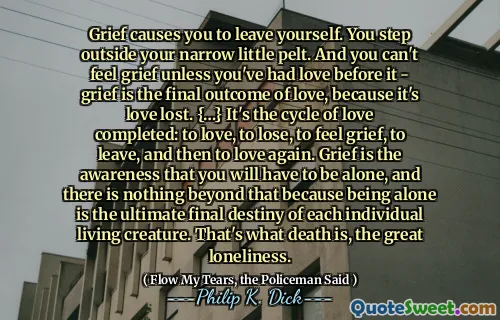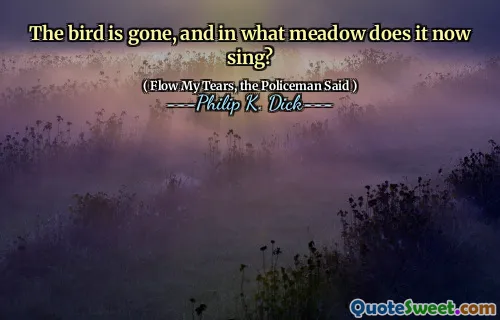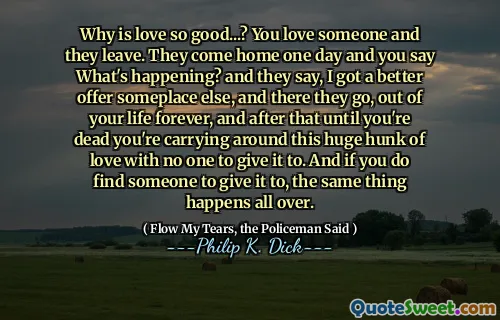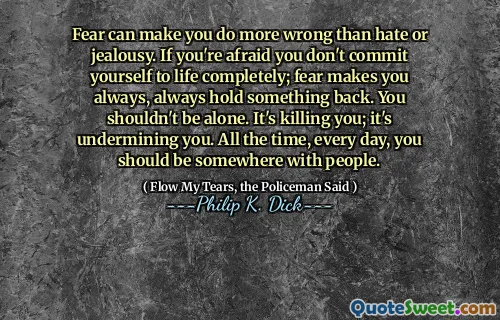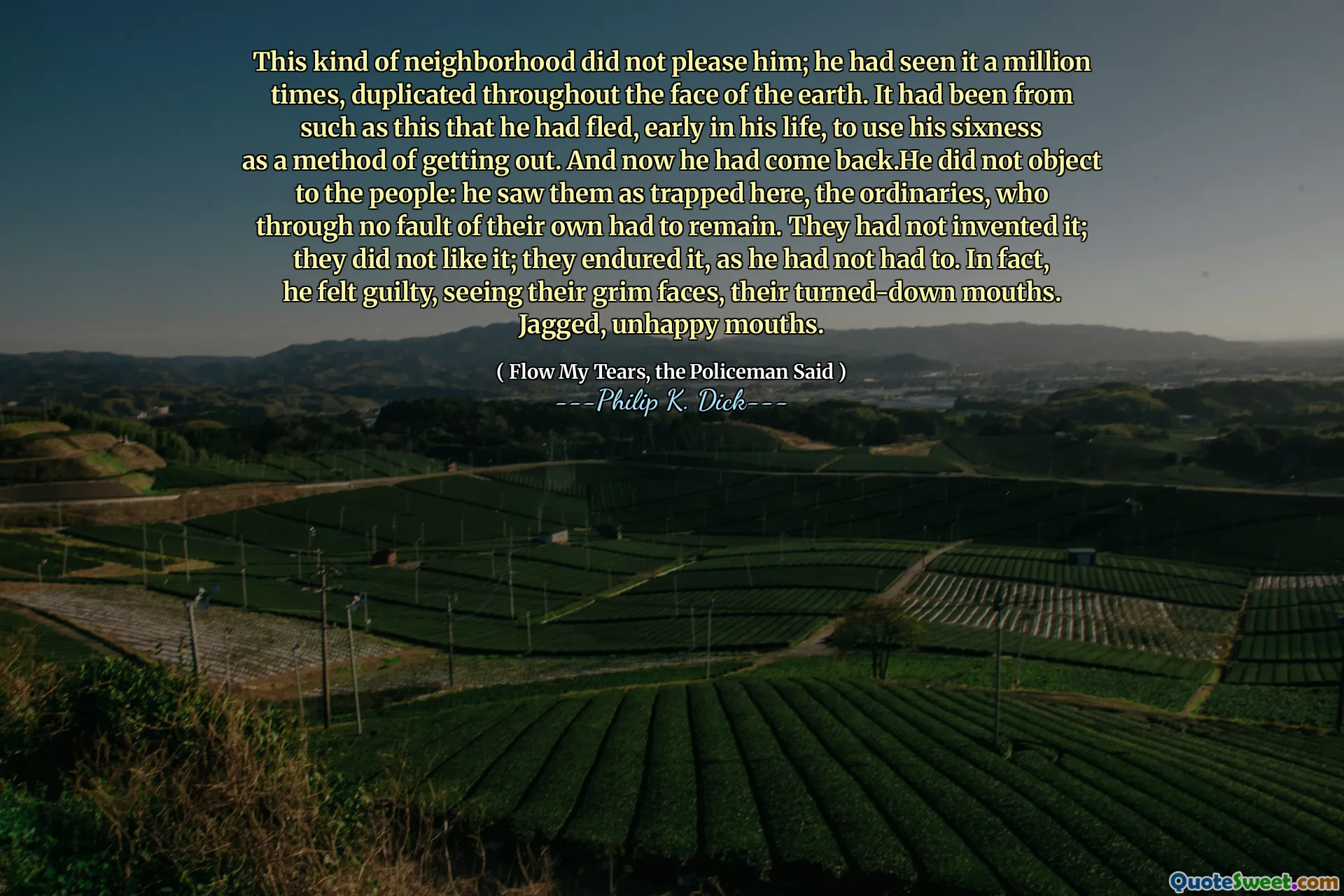
This kind of neighborhood did not please him; he had seen it a million times, duplicated throughout the face of the earth. It had been from such as this that he had fled, early in his life, to use his sixness as a method of getting out. And now he had come back.He did not object to the people: he saw them as trapped here, the ordinaries, who through no fault of their own had to remain. They had not invented it; they did not like it; they endured it, as he had not had to. In fact, he felt guilty, seeing their grim faces, their turned-down mouths. Jagged, unhappy mouths.
The narrator reflects on his disdain for a certain neighborhood, feeling a deep sense of familiarity and discomfort due to its repetitive nature across the world. This is a place he once escaped from, utilizing his unique abilities to break free from the confines of this mundane existence. Returning now, he is confronted with feelings of nostalgia mixed with resistance to the sameness that surrounds him.
Despite his aversion to the environment, he empathizes with the people inhabiting it, recognizing them as victims of their circumstances. They are the "ordinaries," caught in a life they did not choose and cannot change, which provokes guilt within him. Their expressions reflect sorrow and resignation, symbolizing the emotional toll of being trapped in a cycle that he managed to escape. Through their grim faces, he sees the pain of a life endured rather than lived authentically.


